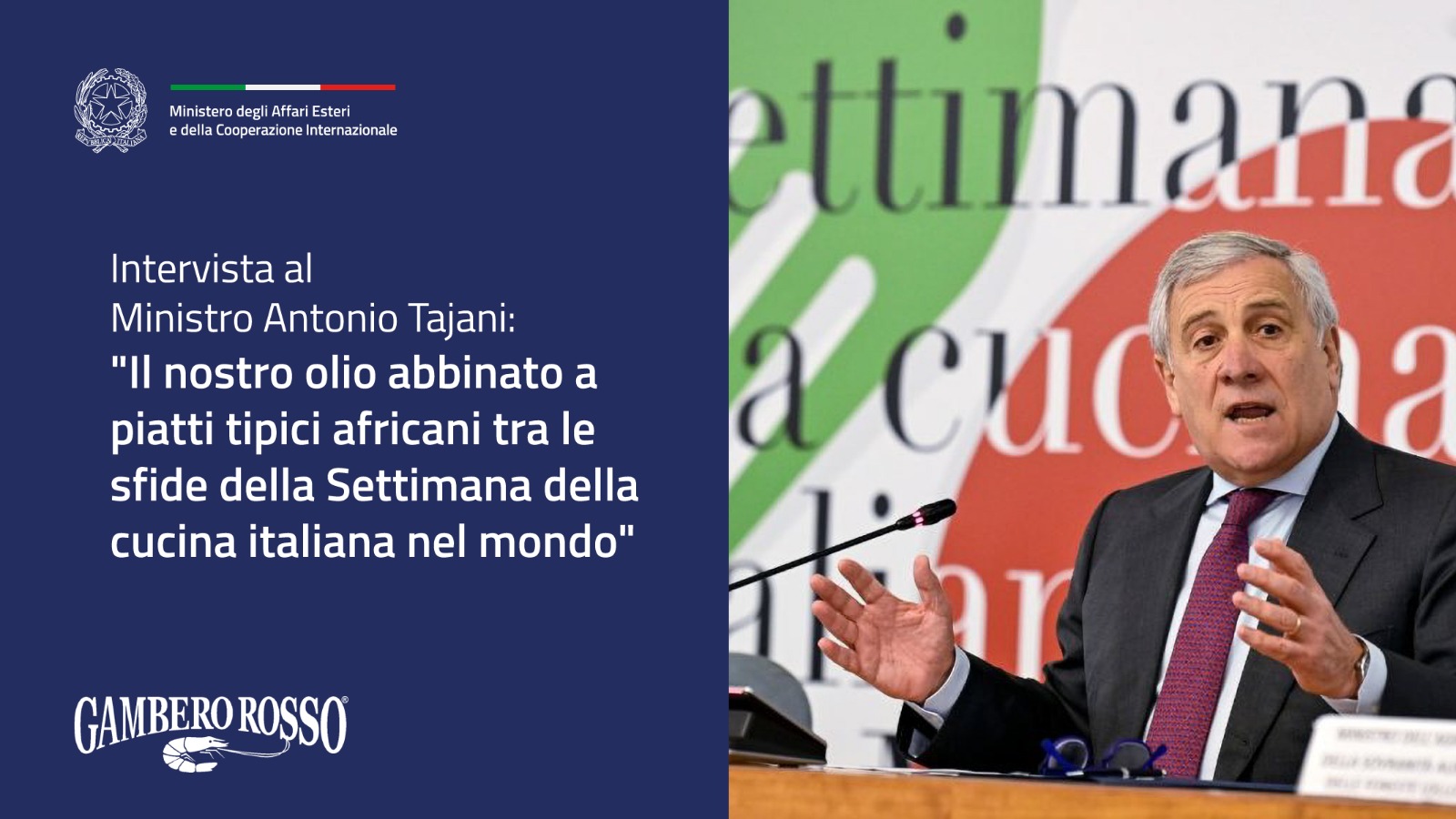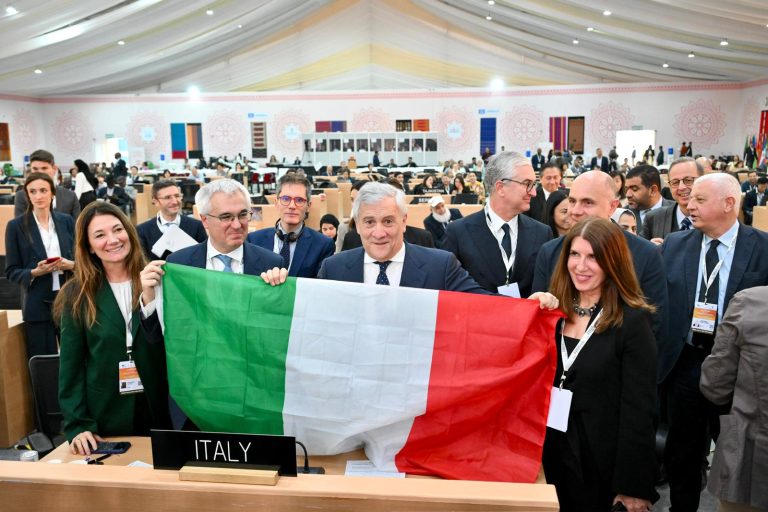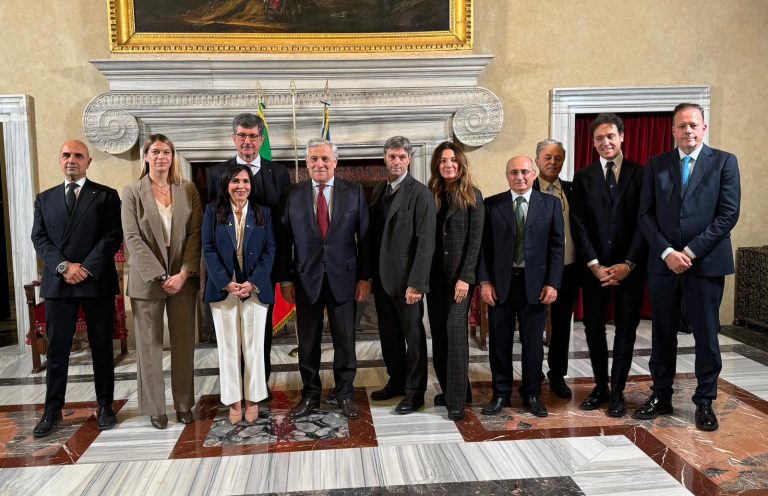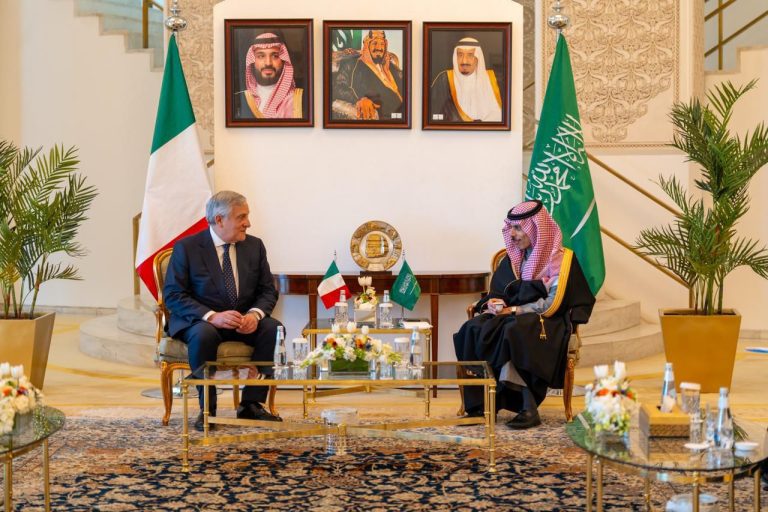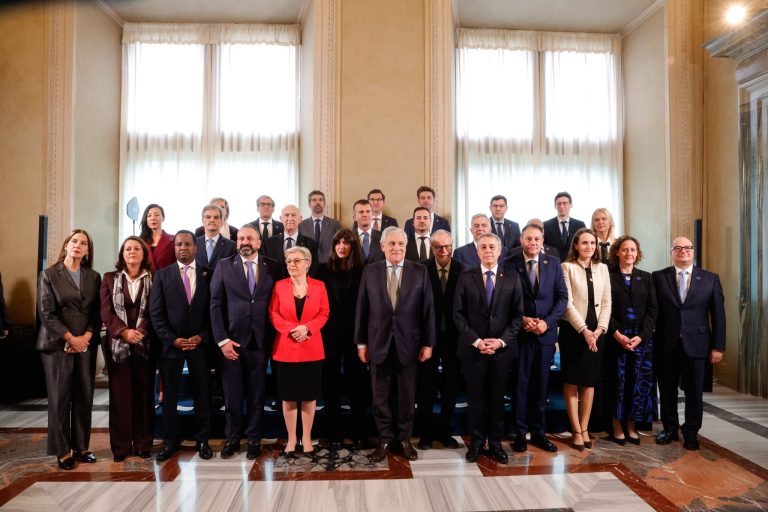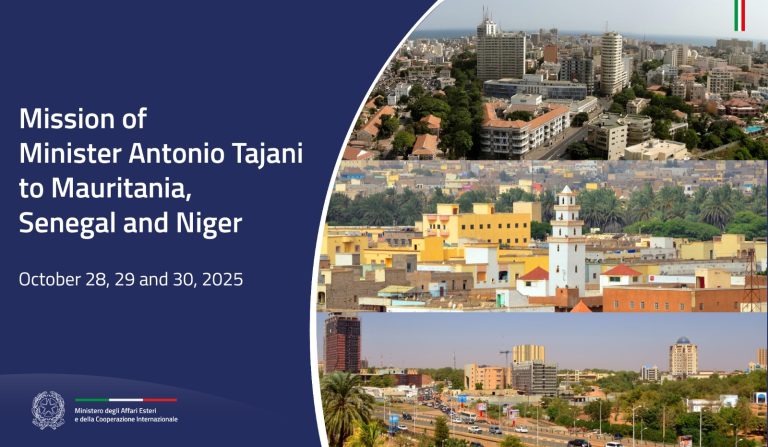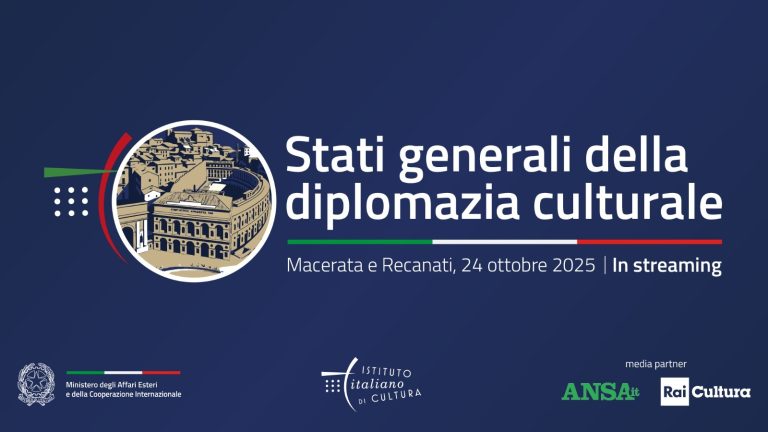The first Week of Italian Cuisine in the World was held in 2016. The aim was to promote our food and wine culture in the world, as national heritage to be preserved and enhanced. In the various editions, there have been many novelties and innovations in this integrated promotion initiative of the Italian Ministry of Foreign Affairs. For the occasion, we interviewed the Italian Deputy Prime Minister and Minister of Foreign Affairs Antonio Tajani to delve into its salient features.
Could you share with us the inspiration behind this initiative?
The Week of Italian Cuisine in the World is an annual event that has been taking place for several years now. This year, though, I wanted to put even more emphasis on Italian cuisine and growth strategy, which I have been focusing on since my arrival at the Ministry. We want to promote the excellence of our food and wine culture on a global level and present an up-to-date, cutting-edge image of our country, and promote the fundamental values of quality, inclusion, and collaboration that are an important pillar for our country. For this reason, this year, the Italian government has submitted the candidature of Italian Cuisine for inclusion in the UNESCO intangible heritage list.
The eighth edition takes place from 13 to 19 November: what are the most important messages and values to be conveyed?
We have called this year’s edition “A tavola con la cucina italiana: il benessere con gusto” (Italian cuisine: tasteful well-being) to emphasise the relationship between diet and well-being. We want to highlight the Mediterranean Diet as a healthy lifestyle and a balanced diet model accessible to all. We also want to talk about the importance of protected and controlled denomination products, the fight against the phenomenon of Italian sounding and the valorisation of Italian villages and their traditional culinary products.
In terms of numbers and diffusion, can you give us an idea of the scale of the event and its spread, particularly for this year’s edition?
The event is developed through hundreds of initiatives implemented by the network of Italian Embassies, Consulates, Cultural Institutes and ICE Offices abroad. During the 2022 Week, the Italian diplomatic-consular network organised a total of 1,427 events abroad, an increase of 35% compared to the previous year, also thanks to the removal of restrictions due to the pandemic.
Among this year’s protagonists is Africa, with a project to promote Italian olive oil and wine in collaboration with Gambero Rosso. Why was this area chosen?
Africa is a growing continent and is among the government’s foreign policy priorities. There is ample room for a greater diffusion and distribution of Italian products of excellence. We have therefore developed an initiative with Gambero Rosso. The project includes video lessons dedicated to the most famous Italian olive cultivars and the main Italian grape varieties, and a series of video recipes of typical African dishes to which the use of extra virgin olive oil can be associated. These materials will also be used to organise events for schools, universities, training centres and the local press on the African continent.
For this year’s edition of the Week, MAECI created multimedia projects aimed at a wide and heterogeneous audience. For 2023, we have also thought of the young and very young by developing two other multimedia initiatives, with an innovative and perhaps less obvious slant for a public administration. With Casa Artusi, we have created an initiative to publicise gastronomic “Italianisms” in the world: a tale of the strong intertwining of history, culture and food and wine. With the Italian Academy of Cuisine, on the other hand, we developed “Storia della cucina italiana a fumetti. Dalle tagliatelle etrusche al Tiramisù” (History of Italian Cuisine in comic form. From Etruscan tagliatelle to Tiramisu), an excursus presented in a narrative key, from the beginnings to the present day. All projects are translated into several languages to reach a wide audience and create today our audience of tomorrow. At the conference, we will also unveil our plans for 2024, for which we have in mind “La cucina delle radici” (Roots Cuisine), an initiative we want to realise as part of the Turismo delle Radici (Roots Tourism) project.

